Rumaniyeh: A Taste of Palestinian Heritage
Recipe By: Nahed Alfar
In every dish lies a story—a narrative woven with threads of tradition and memory. Rumaniyeh, a beloved Palestinian delicacy, is no exception. Its roots dig deep into the soil of Palestine, carrying with it the tales of a resilient people amidst displacement and adversity.
The Story Behind Rumaniyeh
Rumaniyeh originates from the vibrant cities of Yaffa and al-Lud but found its place of prominence in Gaza. In 1948 there were 100000 palestinians living in Yaffa only 4000 of them would remain there. The rest would be forced to leave, leaving behind cherished homes and memories. Only a fraction remained, echoing the heartbreaking saga of forced displacement that has marred Palestinian history.
Among those who sought refuge in Gaza were the custodians of Rumaniyeh’s legacy. They carried with them not just recipes but the essence of home—the flavors that anchored them to their past amidst an uncertain future. Generations later, these recipes stand as symbols of resistance, cherished heirlooms passed down through the trials of exile.
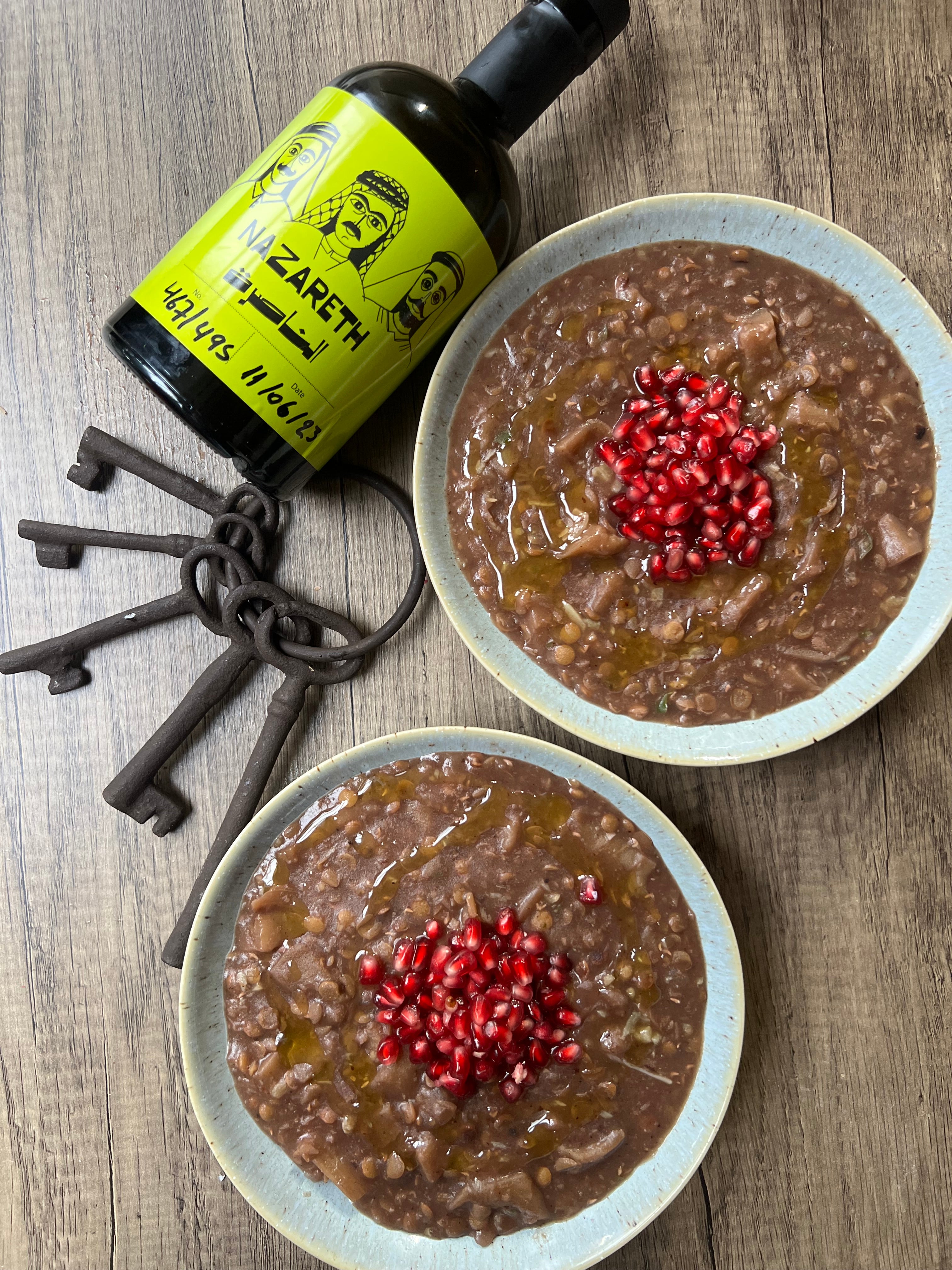
Meet Nahed, a Palestinian whose lineage traces back to al-Lud and Yaffa—the very heartlands where Rumaniyeh was born. Through her hands, the legacy of her grandparents finds expression—a culinary ode to resilience and remembrance.
The Recipe:
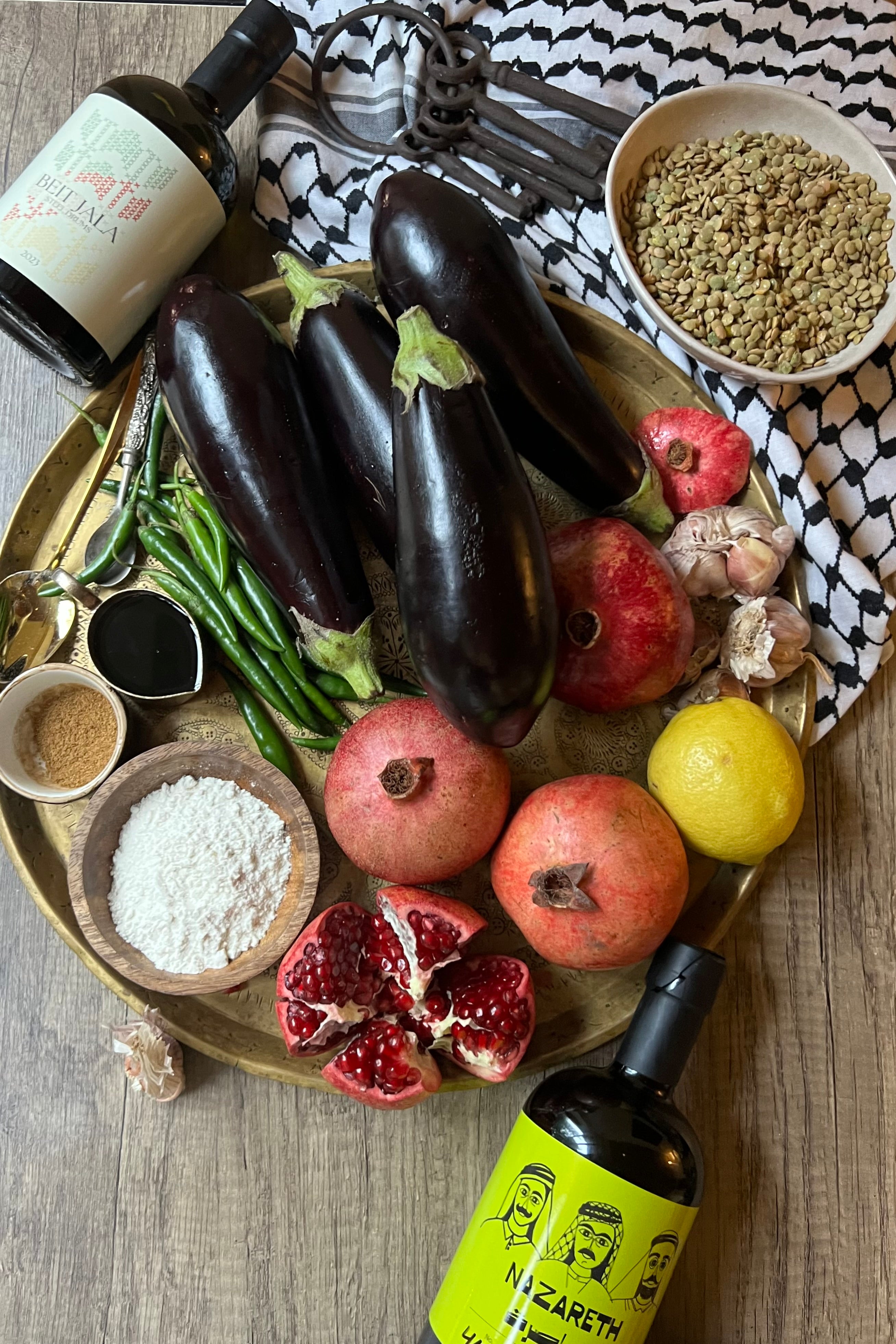
Ingredients
Ingredients:
- 200g brown lentils
- 2 1/2 cups water
- 3 large-size aubergines (around 600g), peeled and cut into 2 cm cubes
- Juice of 3 to 4 sour pomegranates
- 2 tablespoons pomegranate molasses
- 6 to 7 garlic cloves, crushed
- 4 tablespoons extra virgin olive oil
- 2 tablespoons flour (or corn starch for a gluten-free option)
- 1 teaspoon cumin powder
- Juice of one lemon
- 1 to 2 green hot chilies (optional)
- Salt
- Handful of pomegranate seeds, to serve
Here's step-by-step video
Let's get started!
- Rinse the lentils in cold water, then place them in a deep pot with water, salt, cumin, and 2 tablespoons of extra virgin olive oil. Bring to a boil, cover, and simmer for 10-15 minutes until the lentils are half-cooked.
- Add the cubed aubergines to the pot, cover, and simmer for another 15-20 minutes until both the lentils and aubergines are fully cooked.
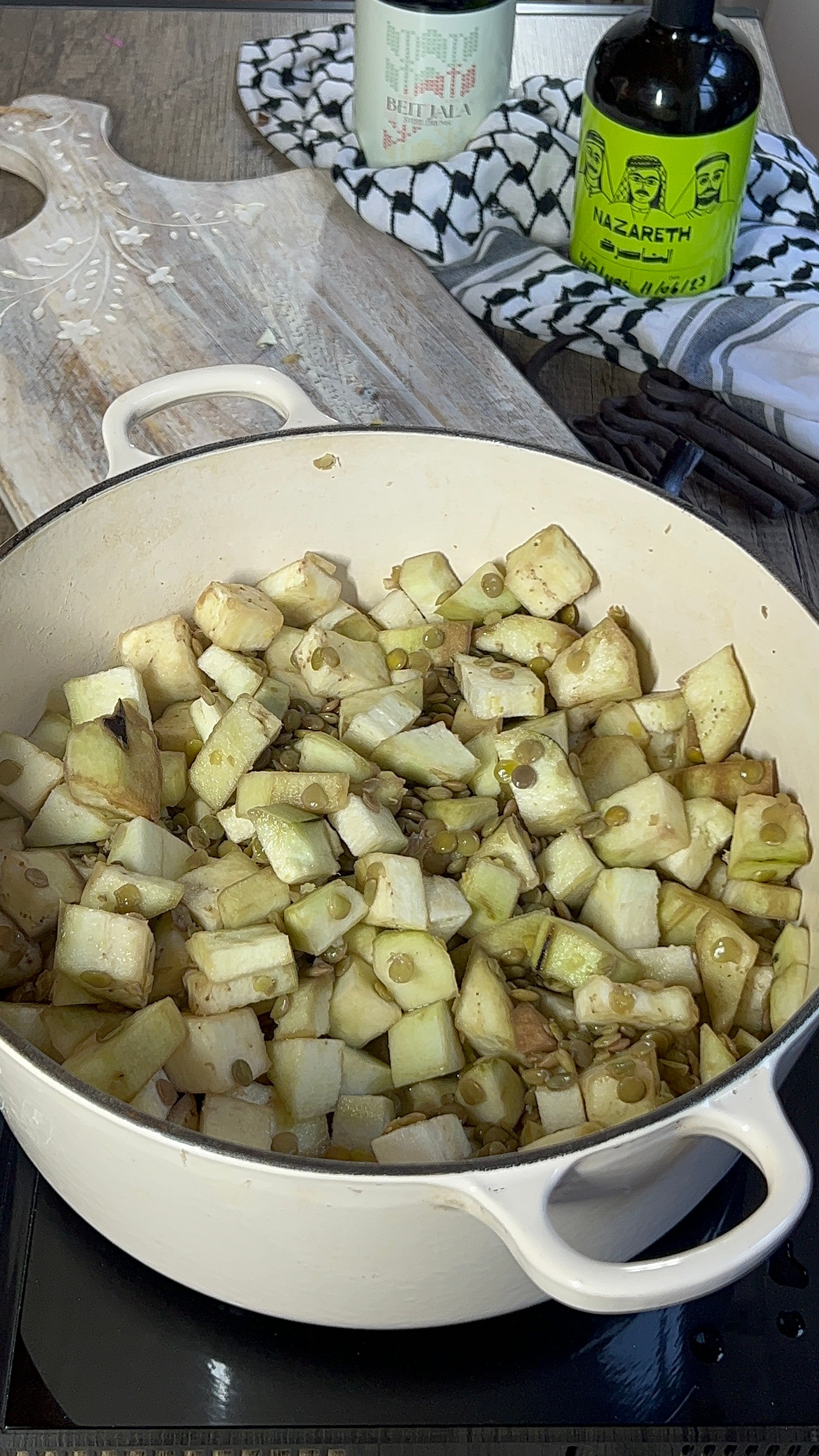
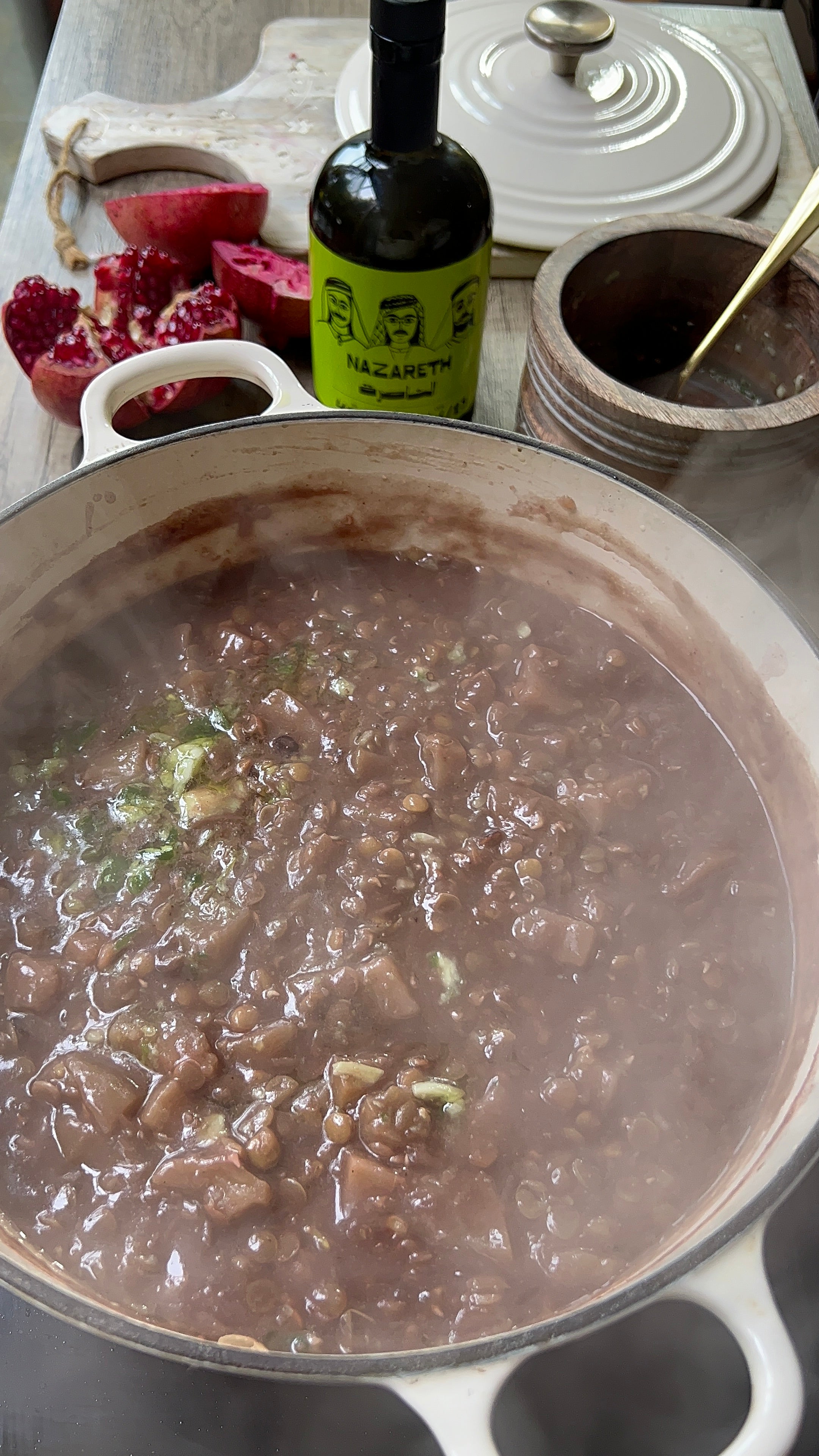
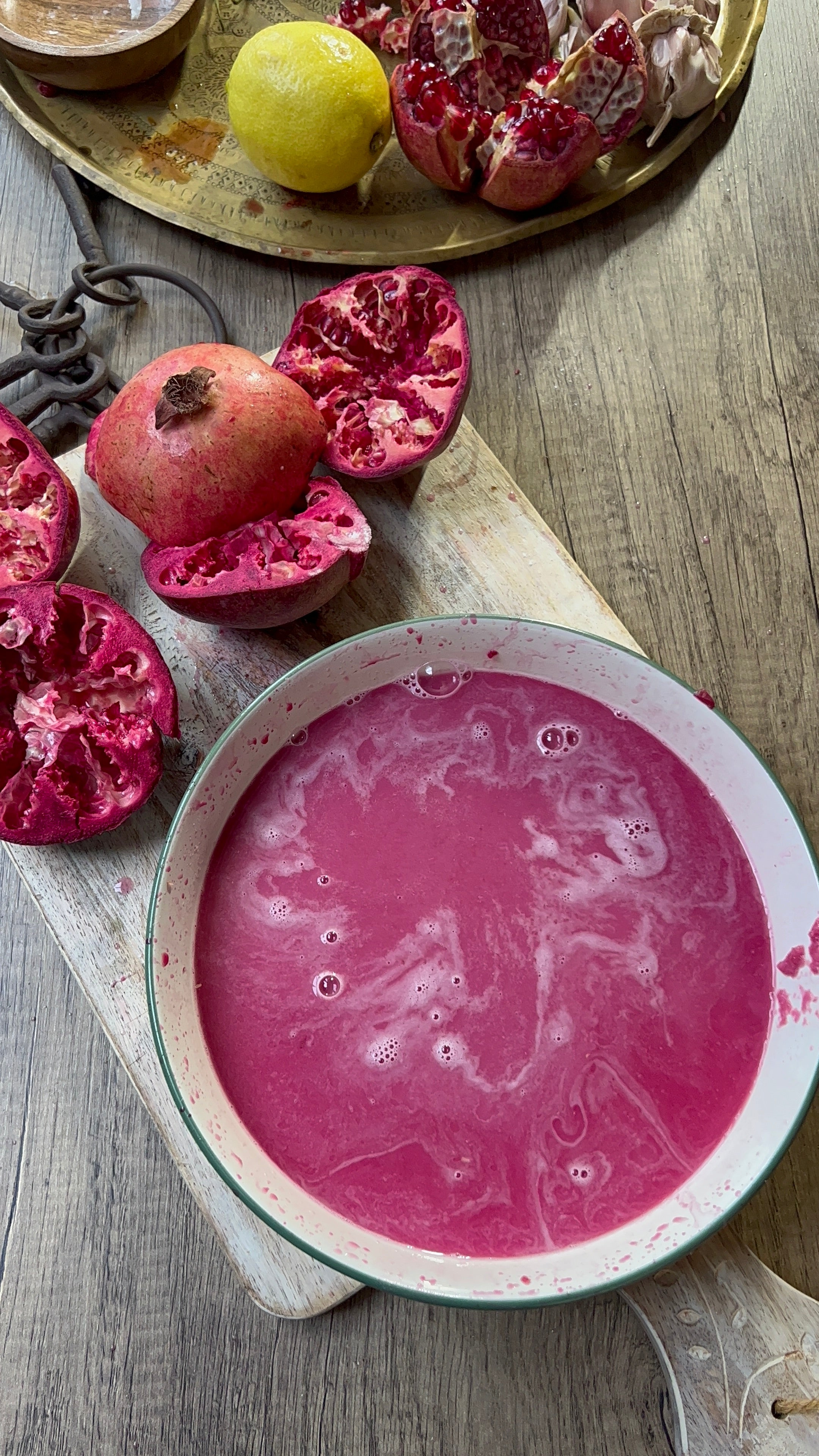
- Mix flour with pomegranate juice and pour over the pot. If the juice is not sour, add lemon juice and pomegranate molasses. Cook for an additional 5 minutes.
- In a separate frying pan, heat the remaining olive oil, add crushed garlic and green chilies (if using), and stir until golden brown. Pour over the pot and adjust salt to taste.
Serve in bowls, garnished with pomegranate seeds and a drizzle of extra virgin olive oil. Enjoy at room temperature with charred flatbread, olives, and pickles.
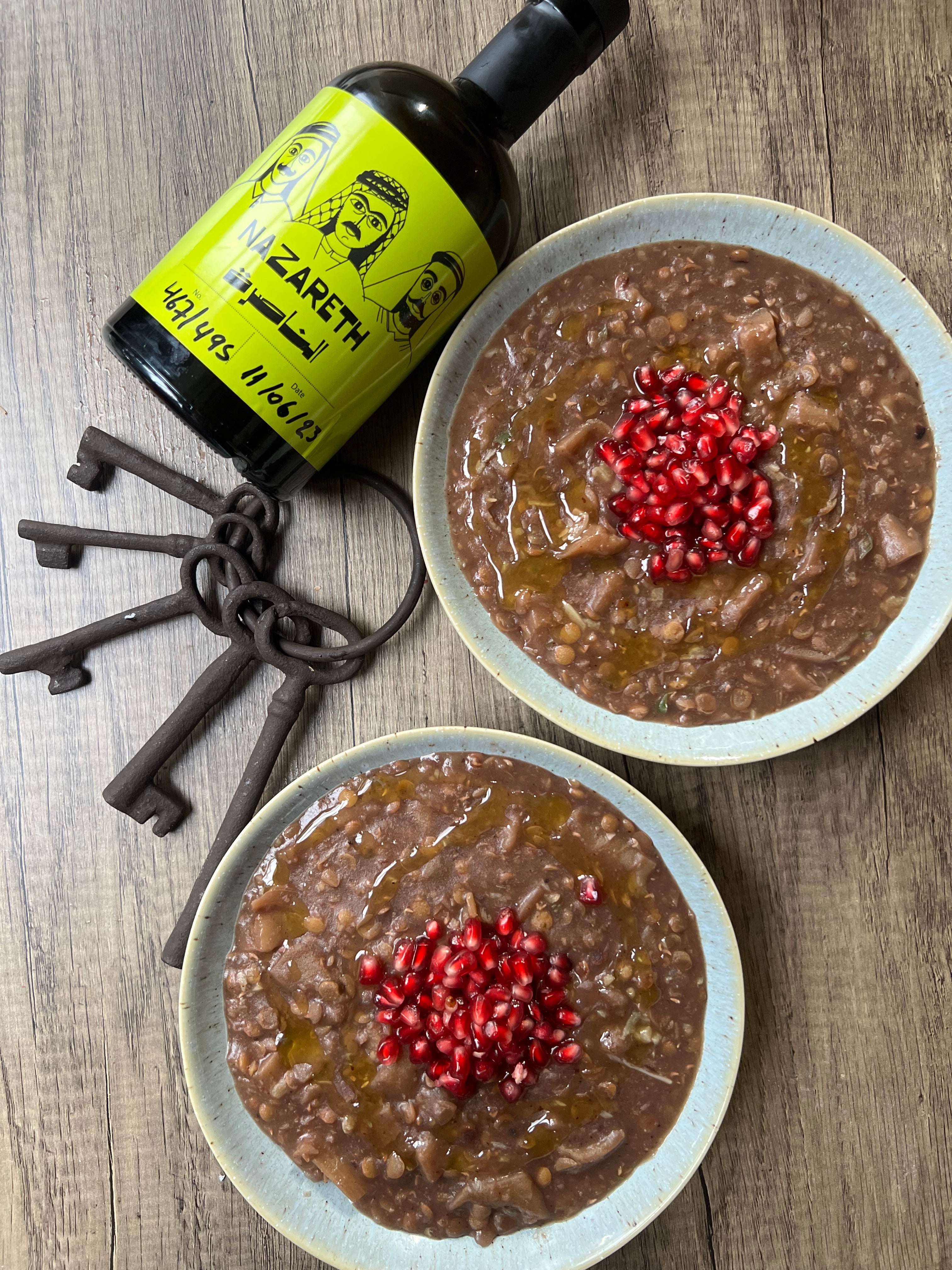
Conclusion: A Taste of Home
In every spoonful of Rumaniyeh, there's a taste of Palestine—a testament to resilience, perseverance, and the enduring spirit of a people determined to preserve their heritage against all odds. As Nahed's hands carry forth the traditions of her ancestors, Rumaniyehis not just a dish, it has become a symbol of identity, resistance and love for a land called home.


